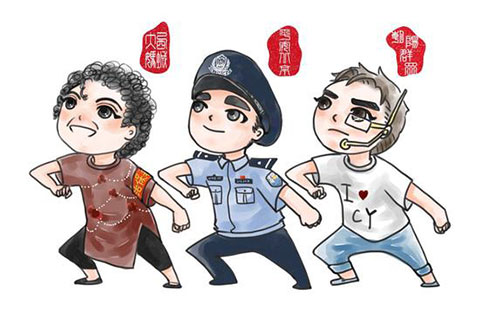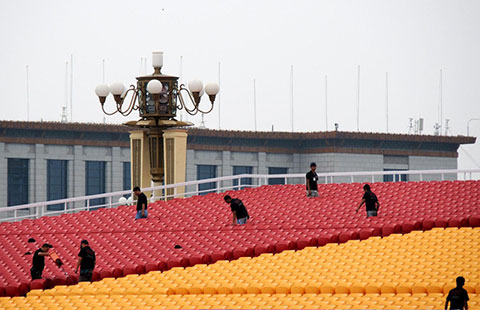Reform to gear up China's taxi service
Updated: 2015-08-21 16:02
(Xinhua)
|
||||||||
BEIJING - China's traditional taxi industry is likely to get rid of several longstanding issues as companies anticipate special regulations by the Ministry of Transport (MOT).
A guideline drafted by the MOT will unveil new rules regarding obtaining cab licenses and restricting their service life, an anonymous source has told Xinhua.
Demand for taxis is growing along with the economy, but a lack of new licenses has hindered capacity.
Huang Shaoqing, a professor with Shanghai Jiao Tong University, said the number of Beijing's inhabitants has increased by 40 percent since 2003, while that of cabs was up only 1.5 percent.
The sluggish growth of cab is caused by an oligopoly of taxi companies, said Zhang Guohua, a senior transport officer at the National Development and Reform Commission, China's top economic planner.
He explained that the government's control of taxi licenses is meant to protect consumers, but a cartel of taxi companies took advantage of such policies and monopolized the entire taxi market with limited licenses.
Analysts said the monopoly helps the companies profiteer using backdoors, such as unofficially transferring cab licenses, but profits from such activities never benefit taxi drivers or local governments.
China's taxi management system is characterized by stringent market entry requirements and a cartel of taxi companies. Taxi drivers in some cities complain about high contract fees, while passengers often find it difficult to hail taxis when they need them.
And the rigid pricing system, with hardly changed starting fares and inflexible charging standards, has made such conflicts worse.
Meanwhile, the rise of ride-on-demand services offered by taxi-hailing firms like domestic Didi Kuaidi and U.S. firm Uber have also disrupted China's taxi service, as more people are choosing to take private rides with more efficient and comfortable services than traditional taxis.
The firms also launched special car services, called "zhuanche" in Chinese, offering private car pick-ups with better service and higher fares, which triggered taxi driver strikes in several cities, claiming their rights are being infringed upon.
Zhuanche services have been declared illegal in cities such as Beijing and Shanghai. However, many citizens still prefer such services than traditional cabs.
- Tsipras formally resigns, requesting snap general elections
- China-Russia drill not targeting 3rd party
- UK, France boost security
- China demands Japan face history after Abe's wife visits Yasukuni Shrine
- DPRK deploys more fire units to frontlines with ROK
- DPRK, ROK trade artillery, rocket fire at border

 Giant panda Bao Bao celebrates two-year birthday
Giant panda Bao Bao celebrates two-year birthday
 Across America over the week (Aug 14 - Aug 20)
Across America over the week (Aug 14 - Aug 20)
 Stars in their eyes: leaders in love
Stars in their eyes: leaders in love
 A survival guide for singles on Chinese Valentine’s Day
A survival guide for singles on Chinese Valentine’s Day
 Beijing police publishes cartoon images of residents who tip off police
Beijing police publishes cartoon images of residents who tip off police
 Rare brown panda grows up in NW China
Rare brown panda grows up in NW China
 Putin rides to bottom of Black Sea
Putin rides to bottom of Black Sea
 The changing looks of Beijing before V Day parade
The changing looks of Beijing before V Day parade
Most Viewed
Editor's Picks

|

|

|

|

|

|
Today's Top News
China advocates practical cooperation between LatAm, East Asia
Giant panda gives birth at Washington's National Zoo
Emissions data won't change China policy
Preparations shutter Forbidden City, other major tourist spots
President Xi Jinping calls for crews not to ease up
Chemical plants to be relocated in blast zone
Asian sprinters on track to make some big strides
Jon Bon Jovi sings in Mandarin for Chinese Valentine's Day
US Weekly

|

|






